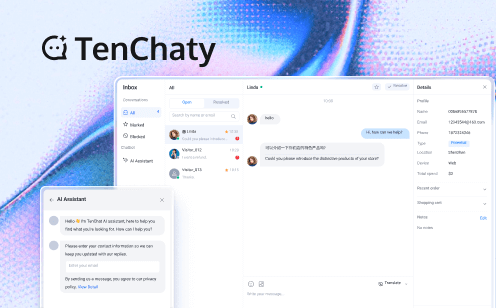
As the healthcare industry embraces the digital age, telehealth platforms have become pivotal in providing accessible, efficient, and secure medical care. The increasing demand for telehealth platforms makes the need for compliance with health data protection standards, such as HIPAA, more crucial than ever. HIPAA compliant telehealth platforms not only bridge the gap between patients and providers but also ensure that sensitive health information is handled with the utmost care and security.
If you're navigating the complex landscape of telehealth solutions, you've come to the right place. This guide will walk you through what telehealth platforms are, the top contenders, and how to select or build one that meets rigorous compliance and patient care standards. Read on to discover the perfect solution for your telehealth needs.
What Is a Telehealth Platform?
A telehealth platform is a comprehensive digital solution designed to facilitate remote healthcare services, connecting patients with healthcare providers through the Internet. These platforms leverage video conferencing, messaging, mobile apps, and other online communication tools to offer a wide range of medical services, from consultations and follow-up appointments to therapy sessions and prescription management.
Telehealth platforms have emerged as a crucial innovation in the healthcare industry, breaking down geographical barriers and making healthcare more accessible to individuals regardless of their location. They support a variety of healthcare delivery modes, including telemedicine (direct patient care), teleconsultation (provider-to-provider advice), and telemonitoring (remote patient monitoring), thus enhancing patient engagement, care continuity, and overall healthcare efficiency.

Features of HIPAA Compliant Telehealth Platforms
The features that distinguish HIPAA compliant telehealth platforms are as follows:
End-to-End Encryption
HIPAA compliant telehealth platforms prioritize end-to-end encryption, ensuring that all data transmitted between patients and healthcare providers is secured against unauthorized access. This encryption covers video calls, messages, and shared files, safeguarding patient information from the point of origin to the destination.
Access Controls
Access controls are critical, allowing only authorized personnel to access patient data. These platforms implement robust authentication methods, including multi-factor authentication (MFA) and unique user IDs, to minimize the risk of data breaches and ensure that patient information remains confidential.
Audit Trials
Audit trials are essential for tracking and recording all user activity on the platform, providing a detailed log of who accessed patient information, what changes were made, and when these activities occurred. This feature aids in compliance monitoring and investigation of any unauthorized access.
Secure Data Storage
Secure data storage solutions are implemented to protect stored patient information. HIPAA compliant platforms utilize encrypted databases and comply with regulations on data retention and deletion, ensuring that patient data is securely stored and disposed of according to legal requirements.
Top 10 HIPAA Compliant Telehealth Platforms
1.Teladoc
Teladoc is renowned for its comprehensive suite of services, offering everything from general medical advice to specialized consultations. Its robust platform facilitates seamless communication between patients and healthcare professionals.
Key Features:
●Wide range of specialties
●User-friendly interface
●24/7 access to healthcare providers
2.Amwell
Amwell combines convenience with quality care, providing users with instant access to doctors, therapists, and specialists. Its platform is designed for both individual consultations and enterprise health services.
Key Features:
●On-demand and scheduled visits
●Integrated with electronic health records (EHR)
●Multi-lingual support
3.Doctor On Demand
Doctor On Demand stands out for its personalized care approach, offering video consultations with board-certified physicians, psychologists, and psychiatrists.
Key Features:
●Mental health services
●Preventive health checks
●Prescription management
4.MDLive
MDLive offers a versatile platform for medical and behavioral health services, enabling users to seek treatment for a wide range of conditions without leaving their homes.
Key Features:
●Behavioral health support
●Easy prescription refill
●Secure messaging
5.PlushCare
PlushCare provides a seamless experience for patients seeking primary care and mental health services, emphasizing continuity of care with the ability to send lab tests and prescriptions.
Key Features:
●Lab testing and follow-ups
●Prescription renewals
●Same-day appointments
6.VSee
VSee is designed for healthcare professionals, offering a secure platform for telehealth consultations, with additional tools for remote patient monitoring and clinic management.
Key Features:
●HIPAA-compliant messaging
●Medical device integration
●Virtual waiting room
7.eVisit
eVisit simplifies telehealth with a platform that supports clinics and hospitals in delivering virtual care, featuring an intuitive interface and comprehensive administrative tools.
Key Features:
●Multi-provider practice
●Payment processing
●Customizable workflows
8.SimplePractice
SimplePractice caters to mental health professionals with tools for video appointments, billing, and documentation, all within a secure, HIPAA-compliant environment.
Key Features:
●Client portal
●Telehealth insurance billing
●Progress notes and treatment plans
9.Healthie
Healthie is a platform designed for wellness and nutrition professionals, offering features for client engagement, program management, and telehealth consultations.
Key Features:
●Client engagement tools
●Group sessions
●Integrated billing and scheduling
10.Chiron Health
Chiron Health focuses on simplifying the telemedicine experience for both patients and providers, with an emphasis on ensuring insurance reimbursements for telehealth services.
Key Features:
●Insurance verification
●Automated reminders
●Custom branding options
Considerations When Choosing a HIPAA Compliant Telehealth Platform
When choosing a HIPAA-compliant telehealth platform, several key considerations should be taken into account to meet patients’ needs and ensure the security and privacy of patient data:
User Experience: Both patients and providers benefit from a platform with an intuitive interface, reducing the learning curve and enhancing the overall care experience.
Scalability: As healthcare practices grow, so do their telehealth needs. Choosing a platform that can scale with your practice is essential to accommodate an increasing number of patients and expanded services.
Technical Support and Reliability: Reliable customer support and minimal downtime are critical for maintaining continuous care delivery. The platform should offer robust technical support to address any issues promptly.
Customization Options: The ability to customize features such as branding, workflows, and communication templates allows practices to tailor the platform to their specific needs, enhancing the professional appearance and patient experience.
Security Features: Beyond HIPAA compliance, look for platforms with advanced security features such as end-to-end encryption, two-factor authentication, and regular security audits to safeguard patient information.
How to Build a HIPAA Compliant Telehealth Platform?
In addition to selecting a reliable HIPAA-compliant telehealth platform, you can also build one yourself. Here is a step-by-step guide to help you begin the process:
- Understand HIPAA Requirements: Familiarize yourself with HIPAA's Privacy, Security, and Breach Notification Rules to ensure your platform meets legal standards for protecting patient information.
- Plan Your Platform: Determine the functionalities your platform will offer, like video consultations and messaging, and choose technologies that support HIPAA compliance.
- Implement Security Measures: Secure data transmissions and storage with end-to-end encryption, use secure communication protocols, and establish strong access controls and authentication mechanisms.
- Choose HIPAA Compliant Vendors: Work with third-party services that are HIPAA compliant, like Tencent Telehealth Chat SDK.
- Develop Privacy Policies: Create clear privacy policies that comply with HIPAA, detailing how patient data is used, stored, and protected.
- Conduct Security Assessments: Regularly test your platform for vulnerabilities and update your practices based on these assessments.
Conclusion
This article has looked into the essentials of HIPAA compliant telehealth platforms, from understanding their fundamental importance and features to highlighting the top contenders in 2024. Furthermore, we've unpacked the intricate process of creating your own compliant platform, equipping you with the knowledge to navigate this complex yet essential domain effectively. So, you will gain valuable insights into choosing or selecting the right telehealth solution for your needs.
FAQs
How Do I Make My Telehealth HIPAA Compliant?
To ensure your telehealth platform is HIPAA compliant, start by implementing strong encryption for data transmission and storage. Adopt access controls and authentication processes to limit data access to authorized users. Regularly conduct risk assessments to identify vulnerabilities and apply necessary security updates. Additionally, ensure all third-party service providers sign a Business Associate Agreement (BAA), and train your staff on HIPAA regulations and patient privacy practices.
How Do HIPAA Compliant Telehealth Platforms Protect Patient Data?
HIPAA compliant telehealth platforms safeguard patient data by implementing robust security measures. Key among these is the use of end-to-end encryption for data in transit, ensuring that only the intended recipients can access and decipher it. For data at rest, encryption secures stored information against unauthorized access. Access controls like unique user IDs and multi-factor authentication verify user identities and restrict access to authorized personnel, while regular security audits and compliance assessments uphold system integrity and compliance with HIPAA standards.
What Is the Best Platform for Telehealth?
The best telehealth platform depends on the specific needs of healthcare providers and their patients. Platforms like Teladoc, Amwell, and Doctor On Demand are widely recognized for their comprehensive services, user-friendly interfaces, and robust security features, making them top choices. You can also build a reliable platform with the help of Tencent Telehealth Chat SDK.
If you have any questions or need assistance online, our support team is always ready to help. Please feel free to contact us or join us on Telegram.


